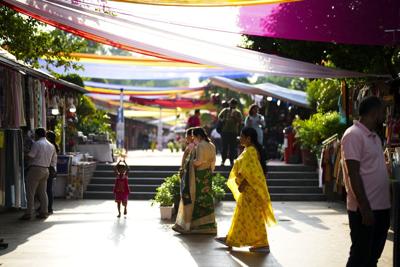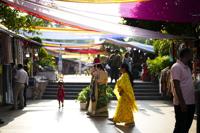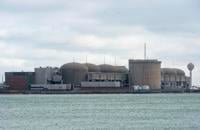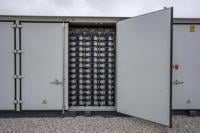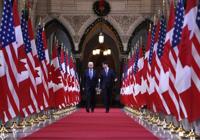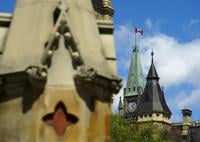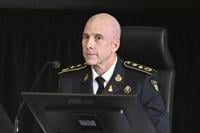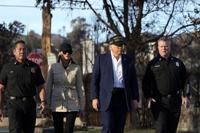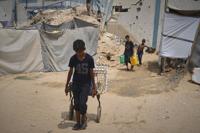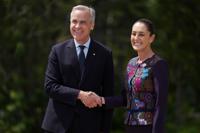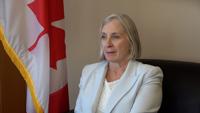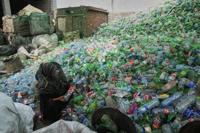OTTAWA - Ottawa's Indo-Pacific strategy has yet to give Canada adequate visibility or distinguish it from the U.S. in the region, experts have told researchers commissioned by the federal government.
The Liberals launched the strategy in late 2022 to make Canada a partner of choice for some of the fastest-growing economies on the planet. In releasing the strategy, Ottawa acknowledged that it is perceived locally as having engaged only intermittently in the region over the decades.
More than two years later, a report commissioned by Global Affairs Canada says regional experts see Canada as "a strategic but secondary player aligned with U.S. geopolitical priorities" that is "often perceived as an extension of U.S. foreign policy rather than an independent global actor."
Global Affairs Canada hired Ipsos to write the report after the firm surveyed 45 experts between March and May on how the strategy was being perceived in five countries: Australia, South Korea, India, Indonesia and the Philippines.
GAC paid roughly $199,976, including taxes, for the research, which took place in local languages and sought feedback through an invitation letter on GAC letterhead. The exercise is meant to inform the strategy's five-year evaluation in 2027.
The report says that Canada lacks a strong brand in the region. "If we go down the street today (and) we ask people whether Canada and America are the same country, they probably won't be able to tell the difference," one regional expert in Indonesia told Ipsos.
Ipsos went over the strategy's five stated objectives: security, expanding trade and resilient supply chains, sustainability, people-to-people ties, and şĂÉ«tv engagement.
The survey says Canada enjoys "a predominantly positive image" in the five countries, as a commodity-exporting country with strong democratic principles.
Experts in South Korea and India told Ipsos Canada has historically been seen as an attractive place to study or live, "and this continues to remain somewhat true." Expensive cities and strict visa requirements have undermined this reputation, the report says.
"While negative impressions were minimal, some experts in India mentioned diplomatic tensions over the Khalistan movement," the report says, referring to Sikh separatism, adding "they were of the view that the situation has not significantly marred Canada's overall reputation in the country."
Respondents in Australia cited Canada's continued extraction of climate-warming fossil fuels as a source of concern, while a South Korean expert said Canada's CANDU nuclear reactors produce too much radioactive waste.
According to someone researchers quoted as "a key respondent from South Korea," Canada is "slow-moving and resistant to change." Another Korean expert told Ipsos Canada lacks prominent manufacturers and suggested "the best-known şĂÉ«tv product is probably ice wine."
Despite şĂÉ«tv officials citing the decades-long footprint in the region of şĂÉ«tv companies such as Manulife — which has offered insurance services in the Philippines since 1901 — the reported noted "limited awareness of şĂÉ«tv brands in the Philippines."
An expert in Australia told Ipsos that Canada is "just not on our radar screen at all … like almost people have forgotten about it." A Korean expert said "the şĂÉ«tv embassy has seemed comparatively passive" compared to Australian and New Zealand counterparts.
The report warns Canada's "limited on-the-ground visibility" makes it less likely to be seen as a partner of choice in the region.
"Several experts pointed to Canada's lack of strategic communication, limited embassy presence, and minimal economic and military footprint in the region as factors hindering its engagement with the region," the report says.
As for the strategy itself, experts quoted in the report recommended a publicity campaign — most of them said they'd never heard of the strategy before. Many suggested the strategy document was "a starting point for enhanced regional involvement," while some said it echoed what other countries already outlined in their own strategies.
"Some experts noted that the strategy relied heavily on widely accepted diplomatic principles without clearly articulating Canada's unique impact," the report notes.
"The (Indo-Pacific strategy) is seen as well-intentioned but somewhat generic, echoing similar frameworks already introduced by others. At worst, the (strategy) risks being seen as 'preachy' or as being of limited relevance."
The researchers did find support for Canada playing a more prominent role, particularly "as a bridge-builder among competing powers." The report says most of the region is undertaking a "delicate balancing" act in response to the growing rivalry between Washington and Beijing.
"Some regional experts saw an opportunity for Canada to evolve its positioning and demonstrate greater strategic independence from the U.S.," the report says.
"There was an expectation for Canada to build on its legacy as a principled and constructive partner while balancing humility with ambition that matches the resources and capabilities at its disposal."
The report says there is "significant room for growth" in security collaboration on things like cybersecurity, and in investments in regional think tanks. Canada should "consider joining" a security partnership with Australia, India, Japan and the U.S. known as the Quad, the report says.
In trade, the report finds a deep desire for "joint ventures to provide opportunities for innovation," particularly in areas that will improve the lives of the average citizen, such as "critical minerals, clean energy, agri-food, and digital technologies."
Ottawa this week named a high commissioner for Fiji, 32 months after promising to open a full diplomatic mission in the Polynesian country.
"While the exact timing of the high commissioner’s arrival in Fiji is to be determined, Global Affairs Canada has started to deploy diplomatic staff in preparation for the opening of a full diplomatic mission," said department spokeswoman Clémence Grevey.
This report by şĂÉ«tvwas first published Aug. 15, 2025.

